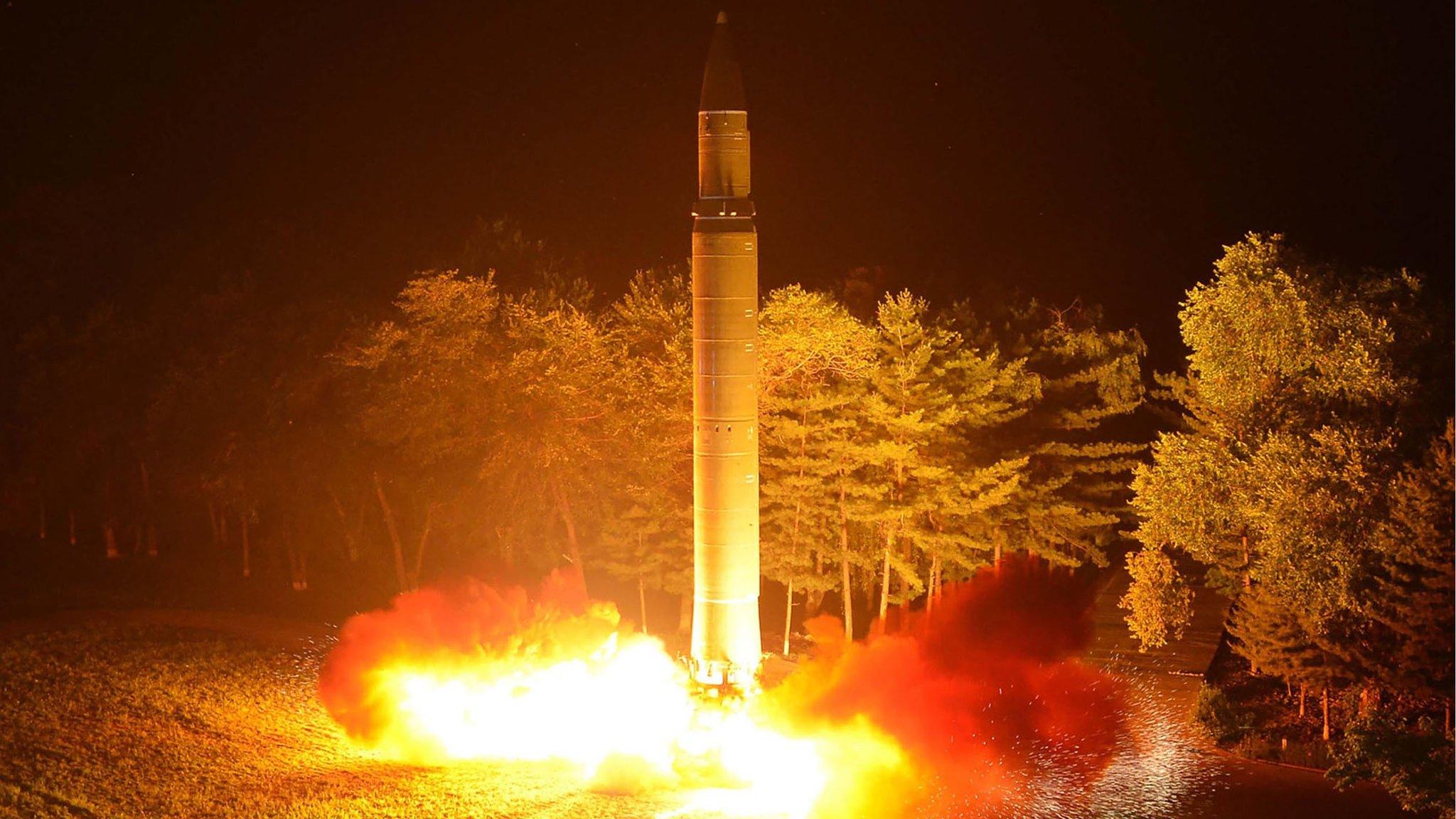North Korea missile: 'Most serious missile launch yet'
- Published
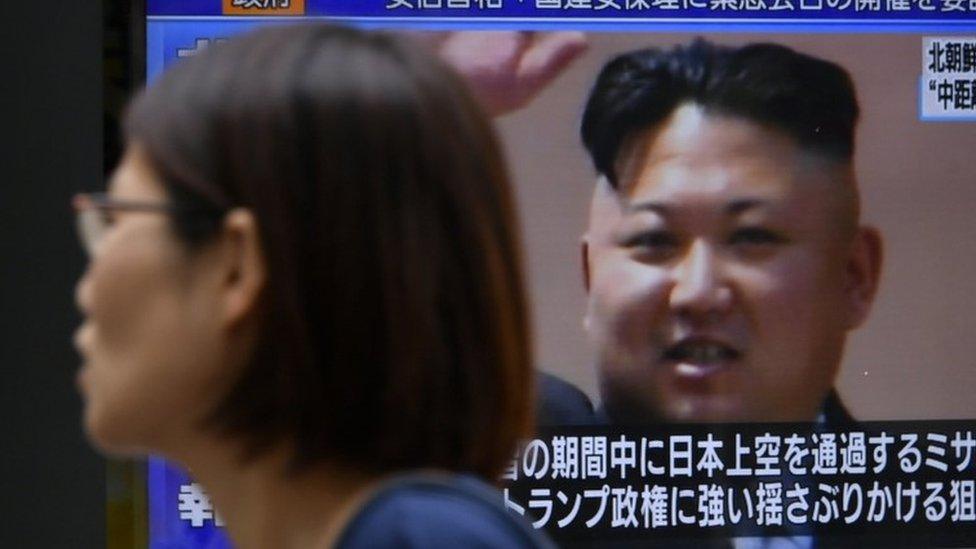
North Korea has fired a missile over Japan's Hokkaido region, sending residents running for cover.
The missile, which landed in the waters off Japan's eastern coast, is thought to be the first nuclear-weapon capable ballistic missile the North has ever sent over the country.
North Korea watchers say this could be its most provocative act yet.
Why is this such a big deal?
Many experts are pointing out that whenever North Korea has sent rockets over Japan in the past it has claimed they were carrying satellites. But this a much more overt threat.
Allow X content?
This article contains content provided by X. We ask for your permission before anything is loaded, as they may be using cookies and other technologies. You may want to read X’s cookie policy, external and privacy policy, external before accepting. To view this content choose ‘accept and continue’.
The missile - believed to be a Hwasong-12 - is designed to carry a large nuclear payload to intermediate ranges, experts believe.
"It's extremely bold, it's extremely provocative and it's something that is prohibited under international law," Dr John Park, from the Korea Working Group at the Harvard Kennedy School told the BBC.
A UN Security Council resolution bans North Korea from all nuclear and missile weapons development.
Christopher R Hill, a former US ambassador in East Asia and the former US negotiator with North Korea, called it the "most serious #nk missile launch yet" on Twitter.
Footage on social media appears to show warning alarms triggered by the missile
Ankit Panda, from the Diplomat, external, agreed, writing: "Tuesday's launch is perhaps the most provocative single ballistic missile launch North Korea has carried out in its near-three-decades of missile testing."
Was this a new type of missile?
No. This seems to have been a similar model to the medium range and intercontinental missiles North Korea has tested in recent weeks.
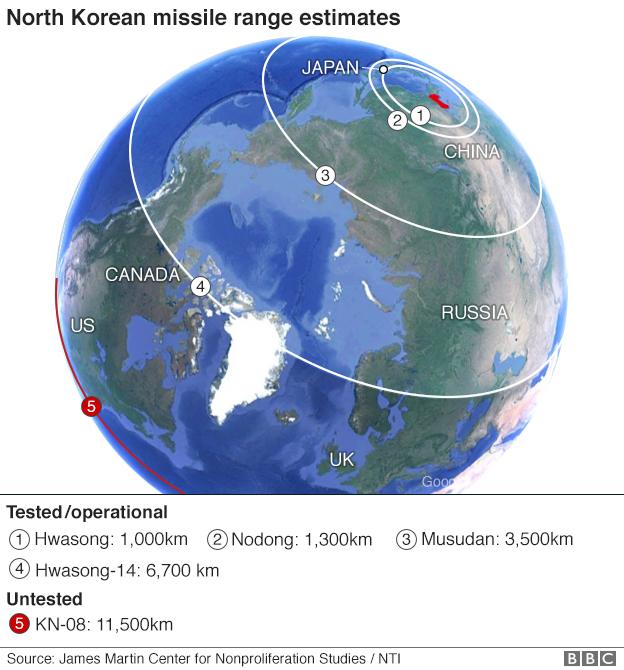
The missile reached a height of about 550km (340 miles) which is much lower than most previous launches.
Where it was fired from could also be significant, experts say.
The Sunan launch site, near Pyongyang, was used for the first time and could mean that North Korea has expanded the number of sites it can use or that it may have wanted to evade detection.
N Korea's Japan missile: The key questions
Overall, several experts say the nuclear and weapons programme is now advancing at a pace that is alarming.
"North Korea now is conducting missile tests at the scale of intermediate range or intercontinental ballistic missile range every four-to-six weeks," says Mr Park.
"That is startling by any standard and especially for a country that is usually underestimated in terms of its capabilities."
What does this mean for diplomacy?
Tuesday's launch signals a very clear message from North Korea, analysts say.
"They want to make the point that they're going to go ahead with their missile programme and their nuclear weapons programmes unhindered by international pressure," Doug Paal from the Carnegie Endowment for International Peace told the BBC.
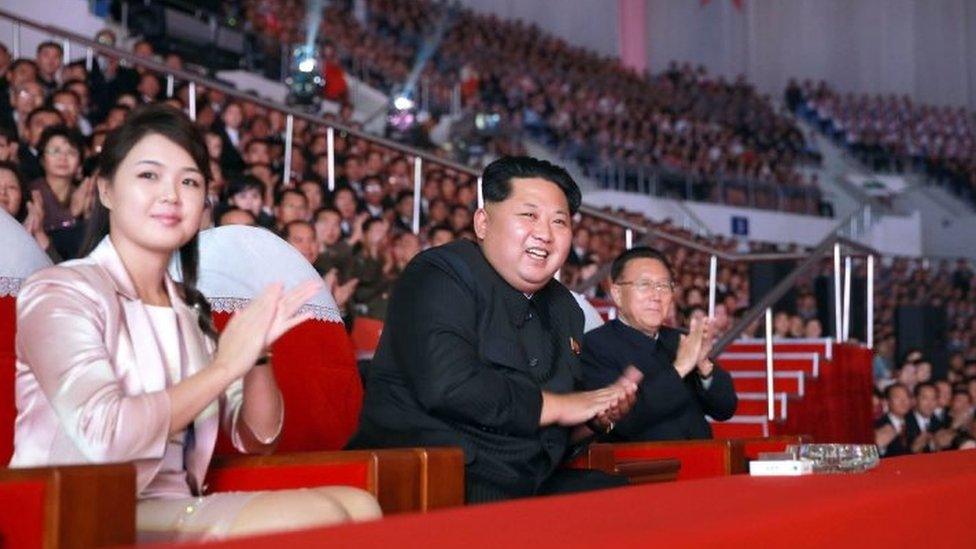
North Korean leader Kim Jong-un seems unfazed
But it may be telling that the North chose to fire over Japan and not towards the US Pacific territory of Guam, something it had threatened to do earlier this month.
"If the North Koreans tested near Guam that would put a lot of pressure on [US President Donald] Trump to respond, I think because this is Japan it gives Trump an out," says Robert Kelly, political science professor at Pusan National University in South Korea.
Despite that, this is being seen by some as a sign that diplomacy and relying on China to take action against its ally do not seem to be working, and a military response might be the only way.
A report in the Korea Times, external cites a US presidential office official as saying the US is now mulling a deployment of strategic assets to South Korea to counter the threat from the North.
"This is not going in a good direction," says Mr Paal.
"It's not calamitous tonight because they did not choose to launch missiles against Guam or any other US territory so far, but it's going in a bad direction."
- Published29 August 2017
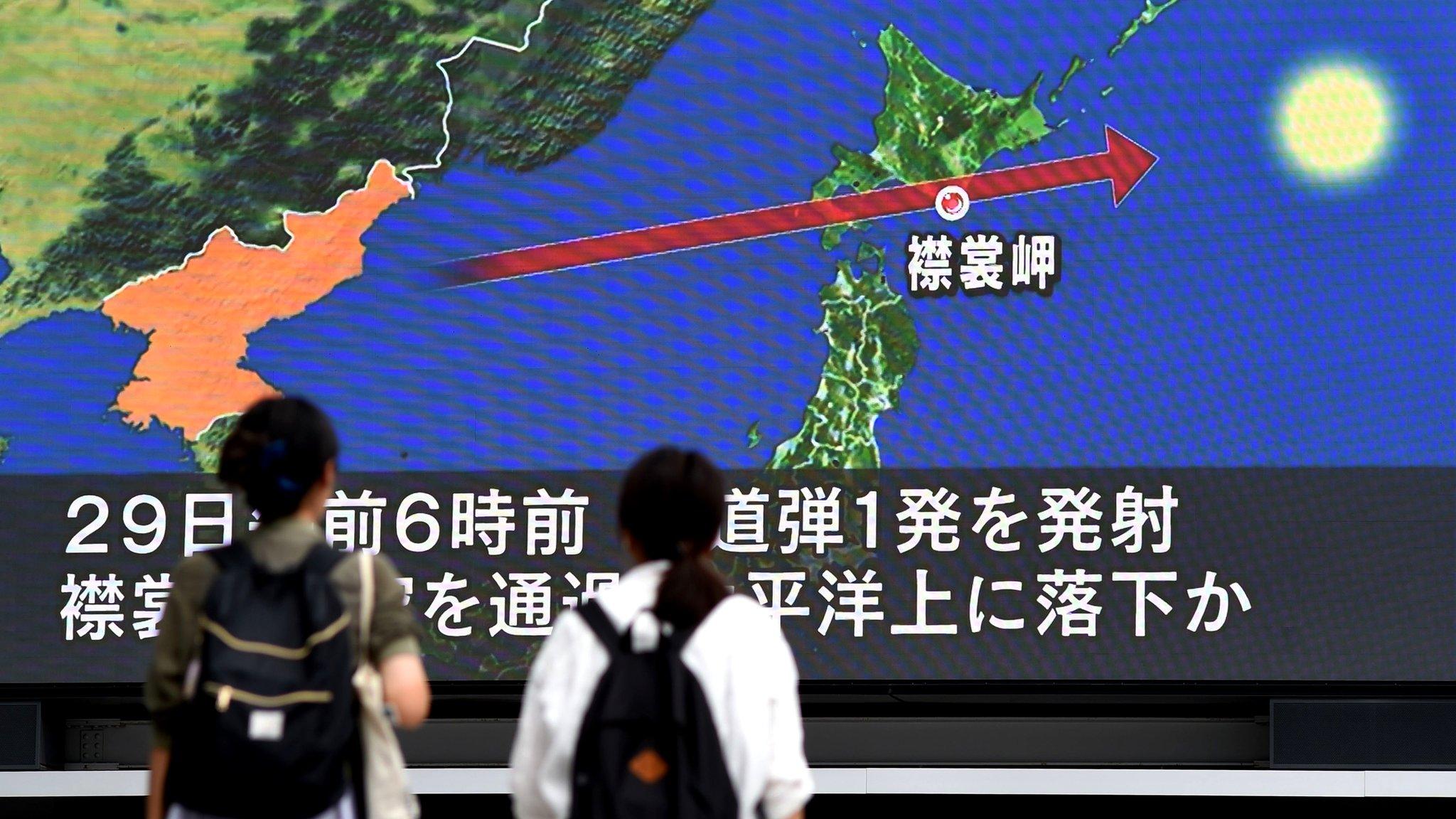
- Published29 August 2017

- Published21 April 2020
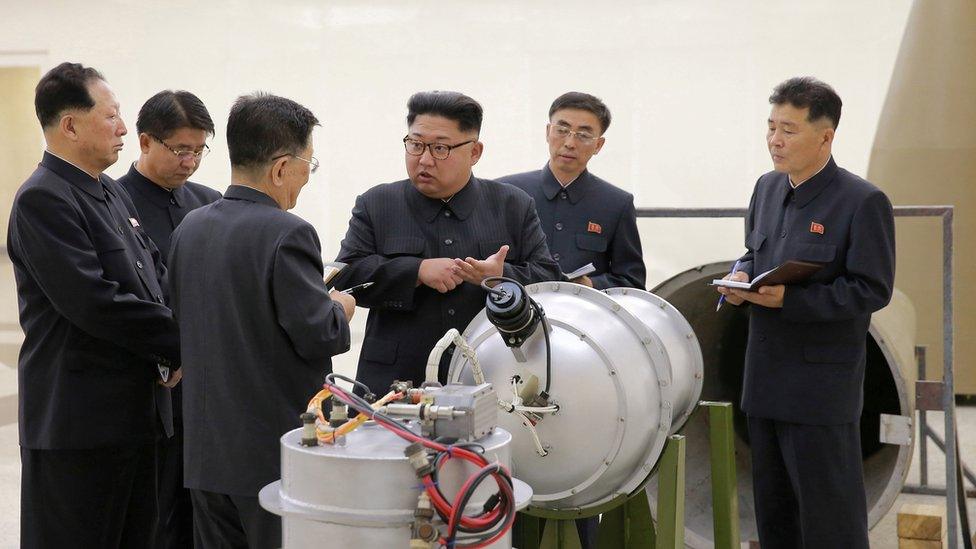
- Published10 August 2017
- Published25 September 2017
